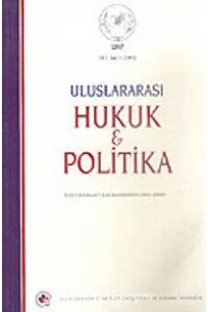International criminal law and politics: Legal standards vs. Political considerations
The International Criminal Court has been operating for one decade. This anniversary offers a good opportunity to take stock of current international criminal law (ICL) in the context of world politics. More specifically, this investigation looks at the issues concerning individual accountability of state leaders and in particular in times of democratic transition. The broader question which will structure the discussion is whether to prioritize International Criminal Law over political considerations. I argue that there is a need to allow for political considerations to have a more prominent role at times. I suggest that alternatives to the strict application of ICL, such as truth commissions, amnesties, or even exiling individuals would allow for the principle of attributing individual guilt to be upheld without precluding the political concerns in the transitioning country to be heard.
___
BBC News - 'No Question' of Chad Arresting Sudan President Bashir.’ BBC, http://www.bbc.co.uk/news/world-africa-10721704 (accessed 27 July 2010).Berber, Friedrich. Lehrbuch Des Völkerrechts, Vol. I, Allgemeines Friedensrecht. (München: C. H. Beck, 1975).
Cardenas, Sonia. Human Rights in Latin America, a Politics of Terror and Hope. Edited by Jr. Bert B. Lockwood, Pennsylvania Studies in Human Rights. (Philadelphia: University of Pennsylvania Press, 2010).
Cobban, Helena. Amnesty after Atrocity?: Healing Nations after Genocide and War Crimes. (Boulder, CO: Paradigm, 2007).
Del Ponte, Carla. Madame Prosecutor, Confrontations with Humanity's Worst Criminals and the Culture of Impunity. English language ed. (New York: Other Press, 2009).
Dixon, Martin, and Robert McCorquodale. Cases and Materials on International Law. 4th ed. (Oxford: Oxford UP, 2003).
Du Bois-Pedain, Antje. Transitional Amnesty in South Africa. (Cambridge: Cambridge UP, 2007).
Du Bois, François, and Antje Du Bois-Pedain. Justice and Reconciliation in Post- Apartheid South Africa. (Cambridge ; New York: Cambridge University Press, 2008).
Dunoff, Jeffrey L., and Joel P. Trachtman. Ruling the World? Constitutionalism, International Law, and Global Governance. (Cambridge: Cambridge UP, 2009).
Freeman, Mark. Necessary Evils, Amnesties and the Search for Justice. (Cambridge: Cambridge UP, 2009).
Glahn, Gerhad von, and James Larry Taulbee. Law among Nations, an Introductin to Public International Law. 8 ed. (New York: Person Longman, 2007).
Goldhagen, Daniel Jonah. Hitler's Willing Executioners : Ordinary Germans and the Holocaust. 1st ed. (New York: Knopf : Distributed by Random House, 1996).
Grewe, Wilhelm Georg, and Michael Byers. The Epochs of International Law. (New York: Walter de Gruyter, 2000).
Gross, Leo. ‘The Peace of Westphalia, 1648 - 1948.’The American Journal of International Law, No: 42, 1948, pp. 20 - 41.
Henkin, Louis, Richard Crawford Pugh, Oscar Schachter, and Hans Smit. International Law, Cases and Materials. 3 ed, American Casebook Series. (St. Paul, MN: West Publishing, 1993).
International Center for Transitional Justice. ‘Focus: Transitional Jusitce, What Is Transitional Justice?’. (New York: ICTJ, 2009).
Joyner, Christopher C. International Law in the 21st Century, Rules for Global Governance. Edited by Deborah J. Gerner and Eric Selbin, New Millennium Books in International Studies. (Lanham/MD: Rowman & Littlefield, 2005).
Krasner, Stephen D. Sovereignty, Organized Hypocrisy. (Princeton, NJ: Princeton UP, 1999).
Lamont, Christopher K. International Criminal Justice and the Politics of Compliance. (Burlington, VT: Ashgate, 2009).
Malanczuk, Peter. Akehurst's Modern Introduction to International Law. 7 ed. (London: Routledge, 1997).
Mallinder, Louise. Amnesty, Human Rights and Political Transitions, Bridging the Peace and Justice Divide, Studies in International Law. (Oxford: Hart Publishing, 2008).
Olsen, Tricia D., Leigh A. Payne, and Andreaw G. Reiter. Transitional Justice in Balance, Comparing Processes, Weighing Efficacy. (Washington, DC: US Institute of Peace, 2010).
Osiel, Mark J. ‘Why Prosecute? Critics of Punishment for Mass Atrocity.’Human Rights Quarterly, No: 22, 2000, pp. 118-47.
Rubin, Alfred P. ‘Legal Response to Terror: An International Criminal Court?’Harvard International Law Journal 43, no. 1 (Winter) (2002): 65-70.
Rubin, Alfred P. ‘Libya, Lockerbie and the Law.’Diplomacy and Statecraft 4, no. 1 1993, pp. 1 - 19.
Sadat, Leila Nadya. ‘Exile, Amnesty and International Law.’ In Faculty Working Papers Series. St. Louis, MO: Washington University in St. Louis, School of Law, 2005.
Schiff, Benjamin N. Building the International Criminal Court. (Cambridge: Cambridge UP, 2008).
Schoenbaum, Thomas J. International Relations, the Path Not Taken: Using International Law to Promote World Peace and Security. (Cambridge: Cambridge UP, 2006).
Silverstein, Gordon. Law's Allure, How Law Shapes, Constrains, Saves, and Kills Politics. (Cambridge: Cambridge UP, 2009).
Smith, Adam M. After Genocide, Bringing the Devil to Justice. (Amherst, NY: Prometheus Books, 2009).
Teitel, Ruti G. Transitional Justice. (Oxford: Oxford UP, 2002).
Van der Merwe, Hugo. ‘Delivering Justice During Transition: Research Challenges.’ In Assessing the Impact of Transitional Justice : Challenges for Empirical Research, edited by Hugo Van der Merwe, Victoria Baxter and Audrey R. Chapman, 115 - 42. (Washington, DC: United States Institute of Peace Press, 2009).
Van der Merwe, Hugo, Victoria Baxter, and Audrey R. Chapman, eds. Assessing the Impact of Transitional Justice : Challenges for Empirical Research. (Washington, DC: United States Institute of Peace Press, 2009).
White, Jamison G. ‘Nowhere to Run, Nowhere to Hide; Augusto Pinochet, Universal Jurisdiction, the Icc, and a Wake-up Call for Former Heads of State.’Case Western Reserve Law Review (accessed through EBSCOhost) 50, no. 1, 1999, PP. 127-77.
Zamoyski, Adam. Rites of Peace : The Fall of Napoleon & the Congress of Vienna. 1st U.S. ed. (New York: HarperCollins Publishers, 2007).
Zavala, Osvaldo. ‘Delivering on the Promise of a Fair, Effective and Independtne Court, the Crime of Aggression.’ Coalition for the International Criminal Court, http://www.iccnow.org/?mod=aggression (accessed 6 August 2010).
- ISSN: 1305-5208
- Yayın Aralığı: Yılda 5 Sayı
- Başlangıç: 2018
- Yayıncı: Uluslararası Stratejik Araştırmalar Kurumu
Sayıdaki Diğer Makaleler
Avrupa Birliği’nde karar alma sürecine katılım ve “Avrupa vatandaşları girişimi”
Demokratik barış teorisi: Bir değerlendirme
" Eurosclerosis'ten 'Eurosteoporoz'a: Avrupa Birliği'nin uygar güç nosyonunun sonu
International criminal law and politics: Legal standards vs. Political considerations
